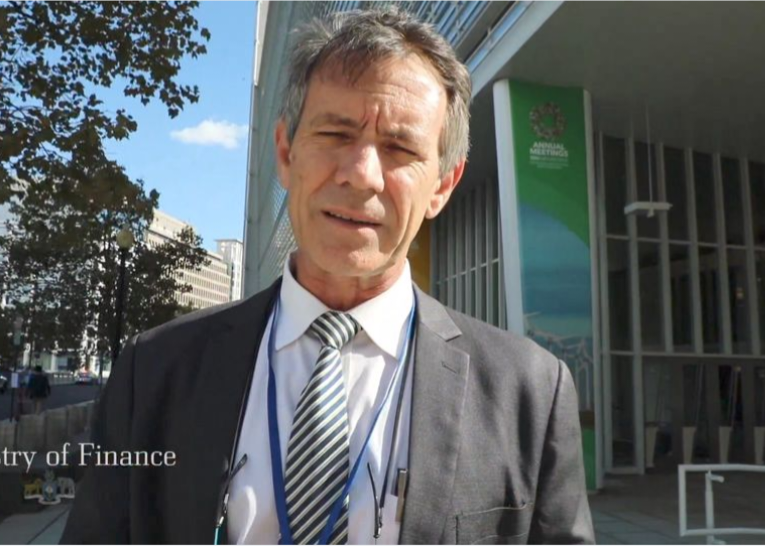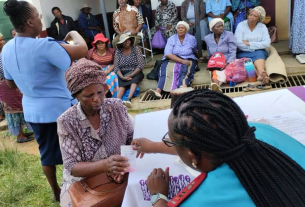BY MBONO MDLULI
MBABANE – The International Monetary Fund (IMF) and the World Bank will continue to be beneficial to Eswatini, as these institutions play an instrumental role in developing Eswatini.
This has been said by Minister of Finance Neal Rijkenberg today (Monday, October 28, 2024) during the #FinanceInFocus edition. However, the minister did not do the edition here in Eswatini, he did it in front of the IMF and the World Bank buildings in Washington DC, United States of America.
Rijkenberg is attending the annual meetings of the institutions, where he joined leaders from around the world to discuss strategies on poverty reduction, sustainable development, and economic growth. Speaking during the #FinanceInFocus, the minister mentioned that the IMF was pivotal for Eswatini because it had always been present when the country was in crisis.
He said for instance, when the country was fighting the COVID-19 outbreak, IMF was there to provide a loan of around E177 542 191 (USD 110 million). According to Rijkenberg, the loan is being paid back by the country to the IMF. He said IMF provided what he termed as the quick-response loans so that the countries who were members of the IMF, like Eswatini, could efficiently recover from crises.
The minister said the IMF also helped in guiding countries on how they were supposed to do things so that their economies could function better. They also focused on giving technical assistance to countries such as Eswatini. According to the minister, the IMF also helped countries to get out of debt crises. However, he assured Emaswati that Eswatini was in safe territory, as it was not in debt crises.
Concerning the World Bank, which has about 190 members, including Eswatini, Rijkenberg said the institution gave ordinary loans to member countries. He said every year, they consulted the World Bank to see if it could be possible to secure loans to develop Eswatini’s infrastructure such as roads and dams. He said funding from the World Bank normally came with a five-year grace period (a period where a loan is not paid).
He said the loans were also paid over a period of about 25 years. The loans, according to Rijkenberg, are normally in US$, but recently, the World Bank has been able to give loans in South African Rands to Eswatini. South African Rands are equally pegged to Eswatini Lilangeni. He said that reduced risks when the country repaid these loans. According to the minister, the World Bank also helped in strengthening the country’s institutions such as Eswatini Revenue Service (ERS).
According to the minister, the institutions were run by executive directors, even though he was the IMF Governor, with Minister of Economic Planning and Development Dr Tambo Gina being the Governor of the World Bank. He said the executive directors were the ones who approved loans for countries. Rijkemberg said Eswatini once had citizens who occupied the positions of executive directors of the two institutions. One of them was former Prime Minister Dr Sibusiso Barnabas Dlamini, who occupied this position in 1994 at IMF. Dumisani Mahlindza also occupied the position in 2018, according to the minister.
The minister said both institutions were referred to as the Bretton Woods Institutions. According to the Bretton Woods Project (www.brettonwoodsproject.com), the two institutions were set up at a meeting of 43 countries in Bretton Woods, New Hampshire, USA in July 1944. Their aims were to help rebuild the shattered postwar economy and to promote international economic cooperation.




